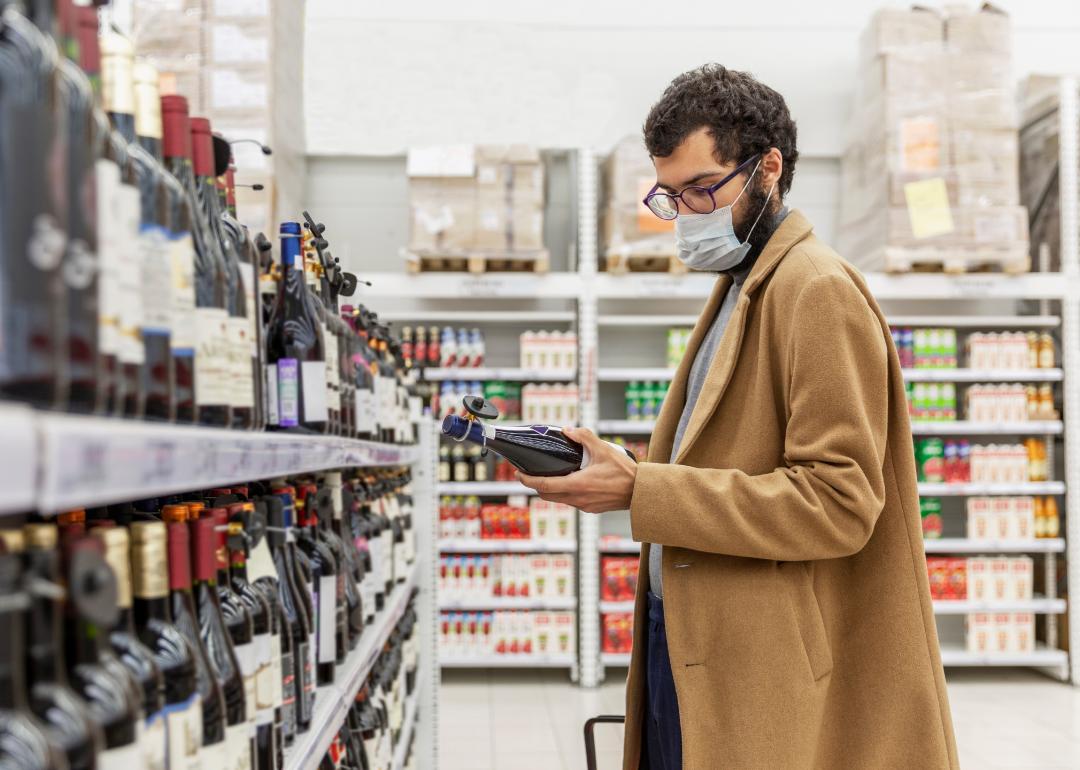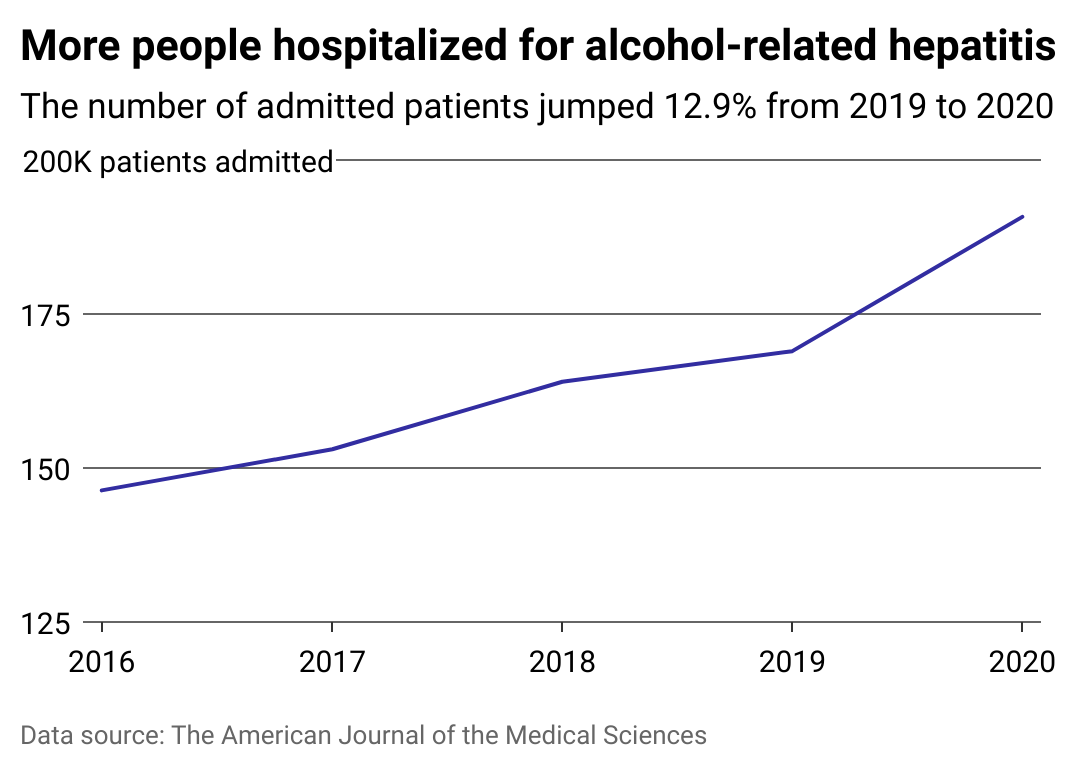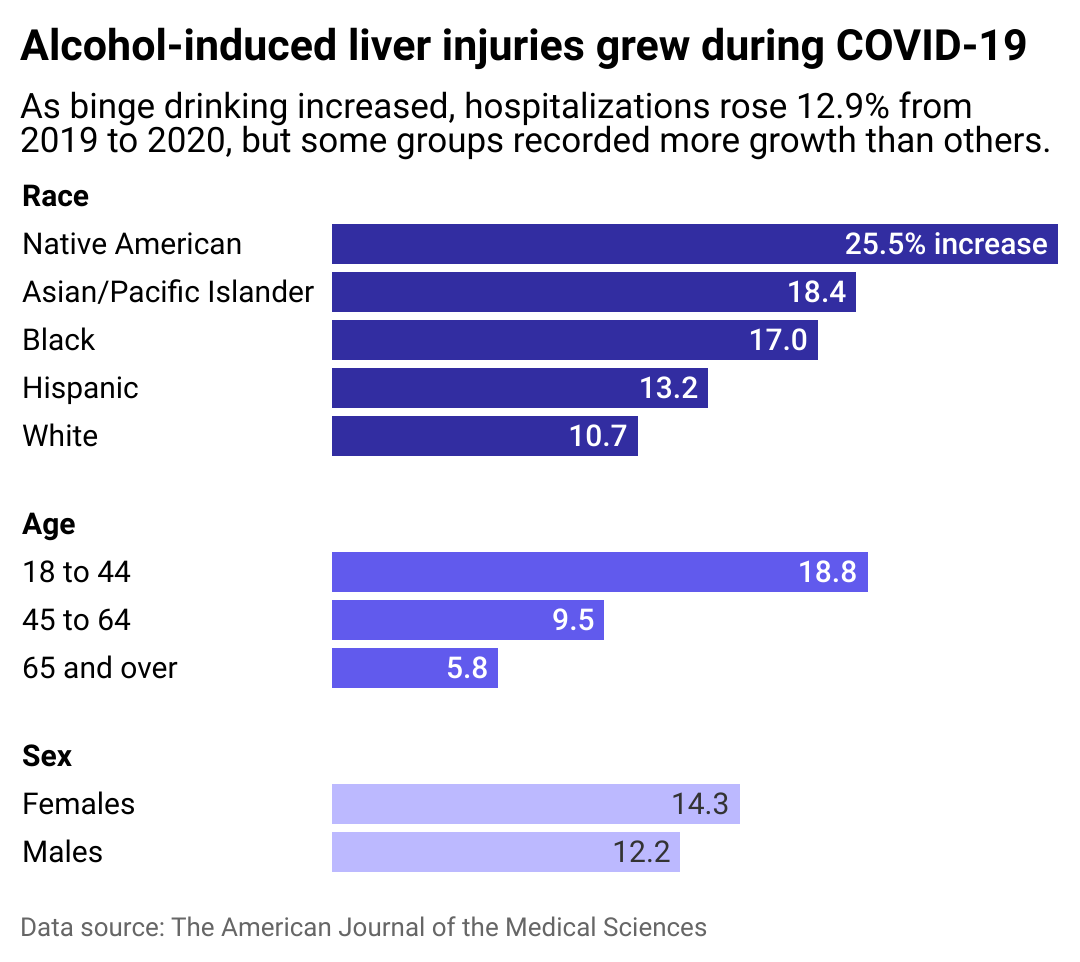
Alcohol-induced liver injuries spiked during COVID-19
This story originally appeared on Northwell Health and was produced and distributed in partnership with Stacker Studio.
Alcohol-induced liver injuries spiked during COVID-19
After more than three years since the height of the COVID-19 pandemic, researchers are discovering the knock-on effects spurred by the illness. Along with the more obvious physical health detriments associated with the pandemic, COVID-19 took a dramatic toll on people's mental health, according to KFF, leading to a spike in alcohol use.
More than 99,000 people died from alcohol-related causes in 2020, according to the National Institute on Alcohol Abuse and Alcoholism—a more than 25% increase from the year before. At the same time, the number of people admitted to the hospital with alcohol-related hepatitis climbed 12.9%, The American Journal of the Medical Sciences reports.
Many factors may have contributed to this surge in alcohol use. Symptoms of anxiety and depression increased substantially during the pandemic, most pronounced among individuals experiencing job loss, women, and young adults. Economic insecurity and increased instances of isolation are associated with increased anxiety and depression. The NIAAA reports anxiety, stress, and previous alcohol misuse were contributing factors to increased alcohol use during the pandemic.
While the landscape of COVID-19 has changed since 2020, many Americans are still experiencing the stress and anxiety that led to increased alcohol use three years ago. Along with increased substance abuse, KFF reports that suicide rates are also still on the rise.
To better understand the landscape of alcohol use and its health risks, Northwell Health partnered with Stacker to examine data published in The American Journal of the Medical Sciences to see how and why alcohol-related hepatitis hospitalizations rose from 2016 to 2020.

Excessive drinking increased during the pandemic
Not only did the total number of patients admitted for alcohol-related hepatitis increase, but hospitalizations saw higher mortality rates during the COVID-19 pandemic, according to The American Journal of the Medical Sciences. Alcohol sales also increased significantly during that time period compared to years before, one study found. As people were forced to stay home and limit human contact, alcohol deliveries became more common. Not only did people drink more often, but they also drank more servings than usual, according to a study published in the Journal of the American Medical Association Network.
Alcohol-related hepatitis is an inflammation of the liver caused by excessive drinking. It can cause yellowing of the skin, weakness, vomiting, and a host of other symptoms, according to Mayo Clinic.

Some groups drank more than others
While a rise in alcohol-related hepatitis hospitalizations was noted for all people, some experienced a higher annual increase in hospitalizations than others.
People of color and women were disproportionately impacted by the pandemic, as many were front-line workers who were faced with high-stress environments, increased risk of contracting COVID-19, and overall job insecurity.
Younger adults also had the most significant rise in alcohol-related hepatitis in 2020, compared both to other age groups and pre-pandemic rates.

Risk factors and how to prevent alcohol use disorder
Alcohol-related hepatitis is a serious and potentially fatal condition, but it can be prevented by practicing responsible drinking habits.
Young people and women should take specific precautions to stay alert to signs of alcohol abuse because they are at greater risk of harm, according to the NIAAA.
The Centers for Disease Control and Prevention recommends limiting alcohol consumption to one or fewer beverages a day for women and two or fewer a day for men, to avoid binge drinking, and to speak with your health care provider or a mental health counselor for support in developing healthy drinking habits.
Story editing by Ashleigh Graf. Copy editing by Tim Bruns.



